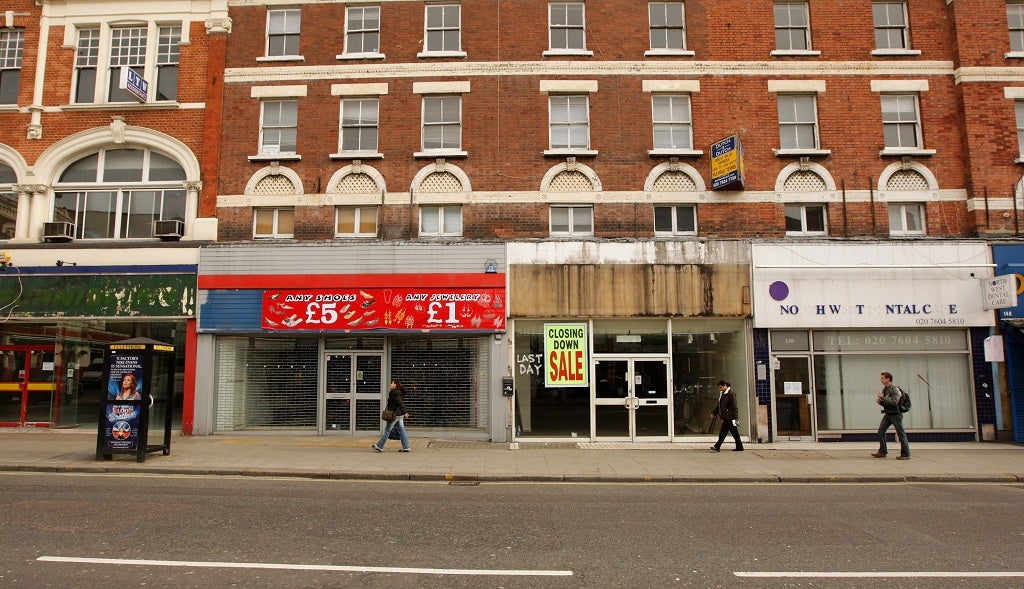From Tooting to Islington, our high streets are bereft of buzz and variety
I don't pine for childhood glories, but the disappearance of my old hairdresser is traumatic - and globalisation won't slow down any time soon

Your support helps us to tell the story
From reproductive rights to climate change to Big Tech, The Independent is on the ground when the story is developing. Whether it's investigating the financials of Elon Musk's pro-Trump PAC or producing our latest documentary, 'The A Word', which shines a light on the American women fighting for reproductive rights, we know how important it is to parse out the facts from the messaging.
At such a critical moment in US history, we need reporters on the ground. Your donation allows us to keep sending journalists to speak to both sides of the story.
The Independent is trusted by Americans across the entire political spectrum. And unlike many other quality news outlets, we choose not to lock Americans out of our reporting and analysis with paywalls. We believe quality journalism should be available to everyone, paid for by those who can afford it.
Your support makes all the difference.For sad reasons that I'll explain at a later date, I spent part of yesterday morning walking around Tooting Broadway, where I grew up, with my Dad. The sky was grey going on black and the pavements were wet. But the high streets that I spent countless hours carousing through as a child and teenager are no more.
Of course they aren't, I hear you say. You're basically middle-aged these days, Amol, and just as life moves on so do high streets. Given 15 years, most of them change beyond recognition. Nostalgia is for losers, so grow up.
Fair enough. But I tell you what struck me about Tooting yesterday, other than that the frequency of the G1 bus seems unchanged: what's going on here is exactly what's going on in Upper Street in Islington, close to where I live now. And what's happening in both places is that small businesses are giving way to big, and variety has been lost to an identikit style where all retail is converging on brashness and big brands.
If you look at sepia-tinged photos of Upper Street from the first half of the 20th century, all human life is there – and boastfully so on shop windows. Walk down the road on a Saturday morning now, and I'm afraid it simply isn't. Basically all the shops are estate agents and restaurants. The odd shoe cobbler stands defiantly in the mix, but time is against him.
Similarly, in Tooting yesterday I went looking for a second-hand bookshop where I got my editions of Asterix (defunct), a record shop where I queued up to get the latest Green Day album (defunct) and my old newsagent (defunct). I wanted to get a haircut from Michael's in Tooting Bec, hoping to pay a fiver as ever. He's gone too, my dad said.
Nostalgia is one thing, but the slow erosion of what really is our common market is something much more traumatic. I don't pine for childhood glories, or bemoan globalisation, or have a problem with supermarkets. But the homogenisation of our high streets, which has many causes, is accelerating and cannot be slowed down.
It is a story repeated across right across Britain. When I wrote about the closure of Comet a fortnight ago, I said that rapid technological advance, globalisation and recession present a challenge to our economic programme that we haven't yet grasped. I must say I hadn't realised just how stark the evidence is from the place I once called home; or that, taken together, this constitutes the end of retail as we know it.
Join our commenting forum
Join thought-provoking conversations, follow other Independent readers and see their replies
Comments